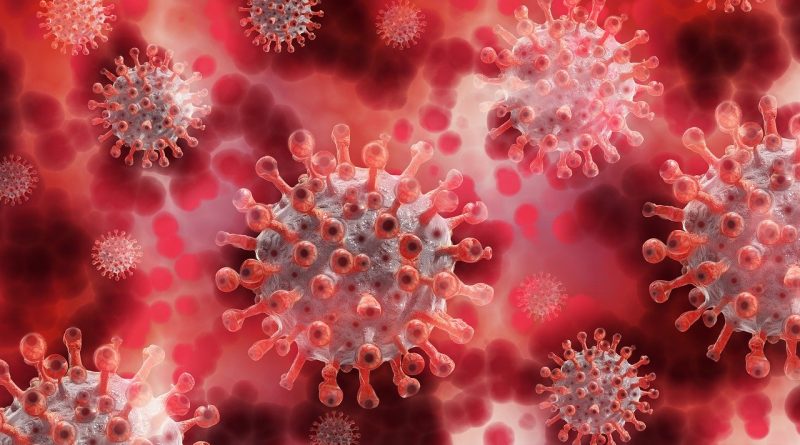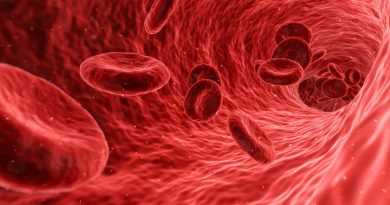AstraZeneca to advance Oxford’s COVID-19 vaccine with $1bn investment
AstraZeneca is going to expedite the development of the University of Oxford investigational COVID-19 vaccine with a $1 billion BARDA cash injection.
Support of more than $1 billion for Oxford’s COVID-19 vaccine
AstraZeneca announced it has received support of more than $1 billion from the US Biomedical Advanced Research and Development Authority (BARDA) for the development, manufacture and delivery of the COVID-19 vaccine, starting in the fall. The development programme includes a Phase 3 clinical trial with 30,000 participants and a paediatric trial.
The British-Swedish science-led biopharmaceutical company is currently working on a number of agreements in parallel to ensure wide and equitable supply of the COVID-19 vaccine globally at no profit during the pandemic. This includes agreements to supply at least 400 million doses of the new vaccine with first deliveries set to begin in September this year.
Planned production of 1 billion doses of the COVID-19 vaccine
AstraZeneca has secured total manufacturing capacity for one billion doses through 2020 and into 2021 and plans to increase capacity further over the next months to ensure the COVID-19 vaccine is accessible around the world.
In addition, the Cambridge headquartered company is engaging with international organisations such as the Coalition for Epidemic Preparedness Innovations (CEPI), Gavi the Vaccine Alliance and the World Health Organisation (WHO), for the fair allocation and distribution of the vaccine around the globe. Furthermore, AstraZeneca is holding talks with governments around the world to increase access to the vaccine. AstraZeneca is also in discussions with the Serum Institute of India and other potential partners to increase production and distribution even further.
COVID-19 vaccine supply to UK starting September
Recently, AstraZeneca joined forces with the United Kingdom Government to support the University of Oxford COVID-19 vaccine and has quickly progressed in its efforts to expand global accessibility to the drug. The UK will start receiving supplies from the Company in September 2020 and is thankful for the Government’s commitment and overall work on the vaccines in development.
Pascal Soriot, AstraZeneca’s Chief Executive Officer, said:
“This pandemic is a global tragedy and it is a challenge for all of humanity. We need to defeat the virus together or it will continue to inflict huge personal suffering and leave long-lasting economic and social scars in every country around the world. We are so proud to be collaborating with Oxford University to turn their ground-breaking work into a medicine that can be produced on a global scale. We would like to thank the US and UK governments for their substantial support to accelerate the development and production of the vaccine. We will do everything in our power to make this vaccine quickly and widely available.”
Oxford’s recombinant adenovirus COVID-19 vaccine
AstraZeneca announced it has now finalised its licence agreement with the University of Oxford for the recombinant adenovirus vaccine. The licensing of the vaccine, formerly ChAdOx1 nCoV-19 and now known as AZD1222, follows the recent global development and distribution agreement with the University’s Jenner Institute and the Oxford Vaccine Group. AstraZeneca will also support the establishment of a joint research centre at Oxford University for pandemic preparedness research.
Clinical Trials of Oxford’s COVID-19 vaccine
A Phase I/II clinical trial of AZD1222 commenced in April to assess safety, immunogenicity and efficacy in over 1,000 healthy volunteers aged 18 to 55 years across different clinical trial centres in southern England. Data from the latest trial is expected very soon which, if positive, would lead to late-stage trials in a number of other countries. AstraZeneca understands that the vaccine may not work but is committed to progressing the clinical program with speed and scaling up manufacturing at risk.
AstraZeneca’s wide-ranging COVID-19 treatment efforts
The Company’s wide-ranging pandemic response also includes rapid mobilisation of AstraZeneca’s global research efforts to discover COVID-19-neutralising antibodies to prevent and treat the progression of the COVID-19 disease, with the aim of starting clinical trials in the next three to five months. In addition, the forward-thinking biotech company has quickly moved into testing of new and existing drugs to treat the infection, including CALAVI and ACCORD trials underway for Calquence (acalabrutinib) and DARE-19 trial for Farxiga (dapagliflozin) in COVID-19 patients.
The Oxford University AZD1222 COVID-19 vaccine
Formerly ChAdOx1 nCoV-19, now known as AZD1222, was developed by Oxford University’s Jenner Institute, in collaboration with the Oxford Vaccine Group. It uses a replication-deficient chimpanzee viral vector based on a weakened version of a common cold (adenovirus) virus that causes infections in chimpanzees and contains the genetic material of SARS-CoV-2 spike protein. Following vaccination, the surface spike protein is produced, prompting the immune system to attack COVID-19 if it subsequently infects the body.
The recombinant adenovirus vector (ChAdOx1) was chosen to for its ability to generate a strong immune response from a single dose. The vector is not replicating, so it cannot trigger an ongoing infection in the vaccinated individual. So far, vaccines made from the ChAdOx1 virus have been given to more than 320 people and have been recognised as safe and well-tolerated, however they can cause temporary side effects such as a fever, influenza-like symptoms, headache or a sore arm.
More about AstraZeneca
AstraZeneca (LSE/STO/NYSE: AZN) is a multi-national global biopharmaceutical company with a focus on discovery, development and commercialisation of prescription medicines, primarily for the treatment of diseases in three therapy areas – Oncology, Cardiovascular, Renal & Metabolism, and Respiratory & Immunology. Headquartered in Cambridge, United Kingdom, AstraZeneca operates in over 100 countries and its novel medicines are used by millions of people globally.
For more information please visit astrazeneca.com





